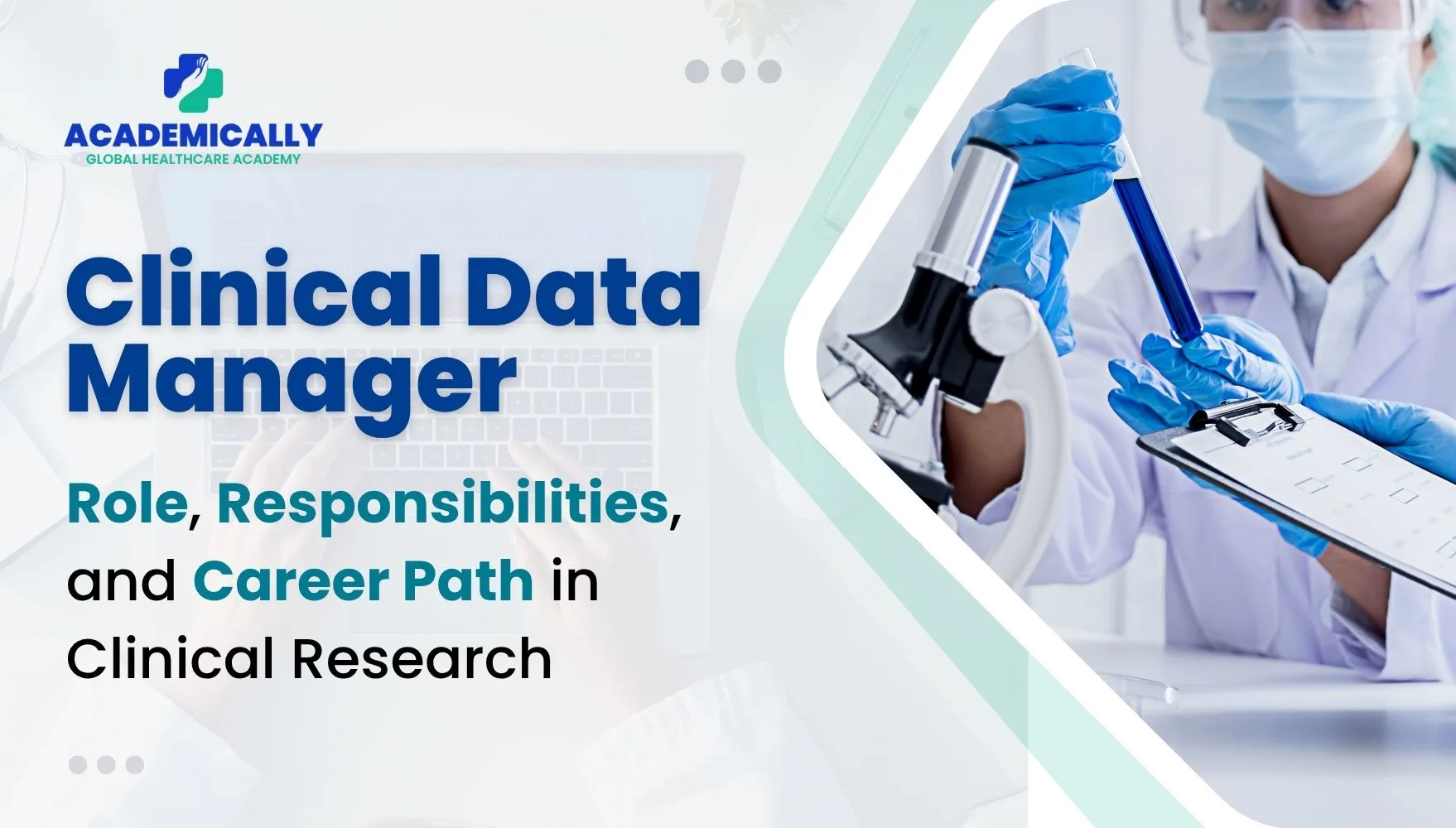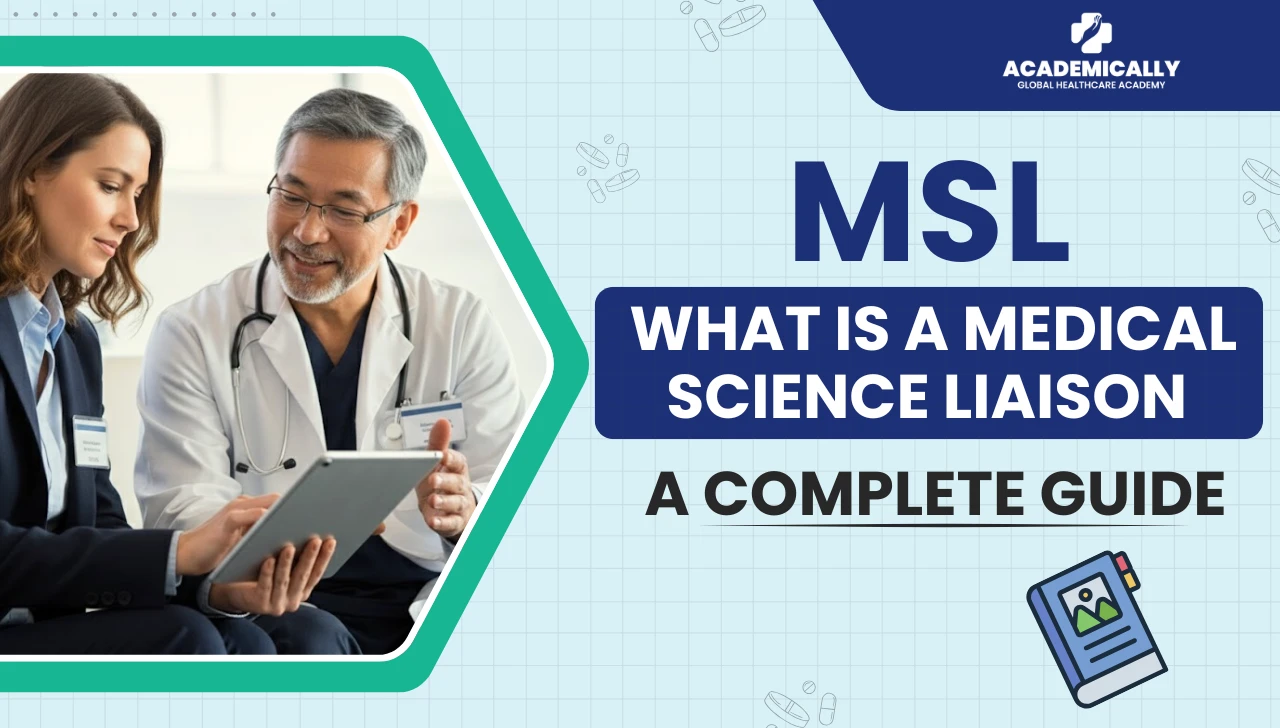Clinical trials run on trust. It is a trust that the numbers are accurate, complete, and usable. The Clinical Data Manager (CDM) is the person who builds that trust. They design and run the systems that collect trial data, make sure data are clean and regulatory-ready. They deliver datasets that biostatisticians and regulators can use with confidence.
But, what are the other roles and responsibilities of a Clinical Data Manager? And how do you become one?
This guide explains all that and more. Find out what the career path looks like, and how India compares with other top countries.
What a Clinical Data Manager Does
A Clinical Data Manager coordinates everything that happens to trial data. They are responsible from the moment data is collected until it’s locked for analysis. A typical list of daily responsibilities can include:
- Design and validate electronic case report forms (eCRFs) and databases (EDC systems).
- Build data management plans (DMP) and standard operating procedures (SOPs).
- Run data validation checks and generate queries for sites to fix inconsistent or missing data.
- Oversee data transfers, data reconciliation, and prepare datasets for the statisticians.
- Ensure compliance with
- GCP
- Patient privacy laws (GDPR/HIPAA)
- Sponsor and regulatory requirements.
In short, CDMs make sure the trial’s “facts” are actually facts.
Skills Employers Want
Technical
- EDC systems (e.g., Medidata Rave, Oracle Clinical)
- SQL
- Basic SAS or R familiarity
- Knowledge of CDISC data standards (SDTM/ADaM)
Quality
- Query writing
- Data validation programming
- Reconciliation techniques
Regulatory and process
- GCP
- Data protection laws
- DMP and SOP drafting
Soft skills
- Attention to detail
- Communication with sites and cross-functional teams
- Project prioritisation
Other useful skills to have are:
- Learn data engineering basics
- Clean data pipelines and cloud storage concepts
- Bridge data management and data engineering
Certifications and Training That Matter
- Short, focused training on CDISC standards and EDC platforms
- Broader clinical research credentials or project management (PMP) can help for senior roles.
- Upskilling certification courses like Postgraduate Certificate in Clinical Data Management.
Career Ladder - From Entry to Senior Leadership
A typical career progression may look like this:
| Role | Detail |
| Data Coordinator / Data Entry | Entry level Site queries CRF checks |
| Clinical Data Manager / Associate CDM | Builds databases Handles validation Supports projects |
| Senior CDM / Lead Data Manager | Owns multiple studies Mentors juniors Interacts directly with sponsors |
| Data Management Head / Data Operations Lead | Runs a team or department Shapes data strategy |
| Cross-functional leadership | Roles such as Head of Clinical Operations Head of Data Science Positions in RWD/RWE Regulatory affairs |
You can get an extra edge through different ways gaining skill and expertise in:
- Biostatistics
- RWD (real-world data)
- Machine-learning fundamentals
These often pivot into higher-value roles like data science and HEOR, faster.
India Vs the World : A Comparison
| Aspect | India | US / Canada | UK / Europe |
| Demand | High Many organisations hire CDMs: CROs Pharma R&D centres Startups | Very high Major pharma and big CRO hubs More senior roles | High Strong pharma hubs (UK, Switzerland) Regulatory complexity increases demand |
| Salary Range | Entry ₹3–6 LPA Mid ₹6–12 LPA Senior ₹12–25 LPA+ | Entry USD 60–80k Mid USD 90–120k Senior >USD 130k | Comparable to US Switzerland is higher UK mid/senior slightly lower than US |
| Certifications valued | SCDM CCDM Vendor EDC training CDISC Local course certificates | CCDM CDISC Advanced SAS/R training Cross-functional experience | Similar to the US. |
| Career Mobility | Rapid growth. Big CROs offer exposure to global trials | Higher pay and more leadership roles. Greater R&D budgets. | Strong regulatory and RWE roles. EU rules require GDPR expertise. |
Numbers vary by city, company, and demand cycle.
Recruiter-level Insights
- Cross-training beats narrow training. CDMs who also know biostatistics, programming like SQL, SAS or R, and CDISC will be hired faster and promoted sooner.
- Real-World Data skills matter. The industry is blending trial data with electronic health records, wearables and registries. Experience with RWD pipelines is a differentiator.
- Soft power here is query diplomacy. The best CDMs don’t just raise queries. They coach sites to avoid the same mistakes. That reduces query volume and speeds database lock.
- Vendor ecosystem knowledge. Knowing how to select and manage EDC, lab-data vendors, and central image vendors is a senior CDM skill many blogs skip.
- Regulatory foresight. The things that can change study design are
- GDPR
- Data residency
- Local authority expectations
CDMs who can advise on data flows earn trust quickly.
Roadmap to Become a CDM
0–6 months
- Learn GCP basics, an EDC platform, and SQL basics.
- Do small online projects or practice datasets.
6–24 months
- Join as Data Coordinator or Junior CDM.
- Get vendor-led EDC training.
- Aim for CDISC fundamentals.
2–5 years
- Pass CCDM if eligible
- Own small studies
- Learn SAS/R and dataset creation.
- Start mentoring juniors.
How To Progress as Clinical Data Manager
- Work for a CRO to get fast exposure to multiple sponsors and therapeutic areas.
- Build a portfolio. A short document listing
- Databases you’ve designed
- EDC tools you’ve used
- SOPs or query reductions you achieved
- Network via SCDM and CDISC events. Hiring managers attend these.
Final words
Clinical Data Management is a technical, high-impact career. It sits at the intersection of science, compliance and data engineering. If you enjoy problem-solving, clean data, and cross-team work, it’s a career that scales well. The more technical breadth you add, the faster you’ll move into high-value roles and leadership.
Another way to get job ready is through Academically’s upskilling program. We help with not only getting you ready for the job, but with the job search as well.
Contact us today and take a flying start for a career as a Clinical Data Manager.





